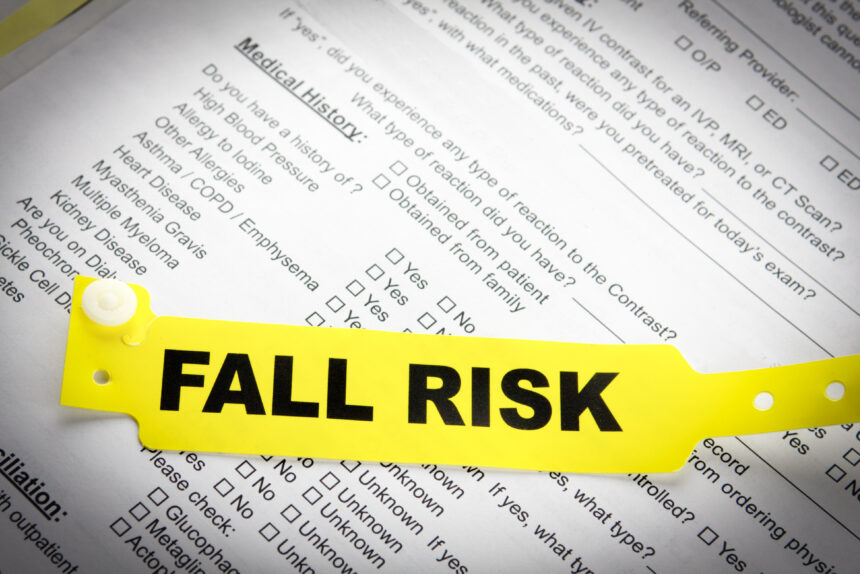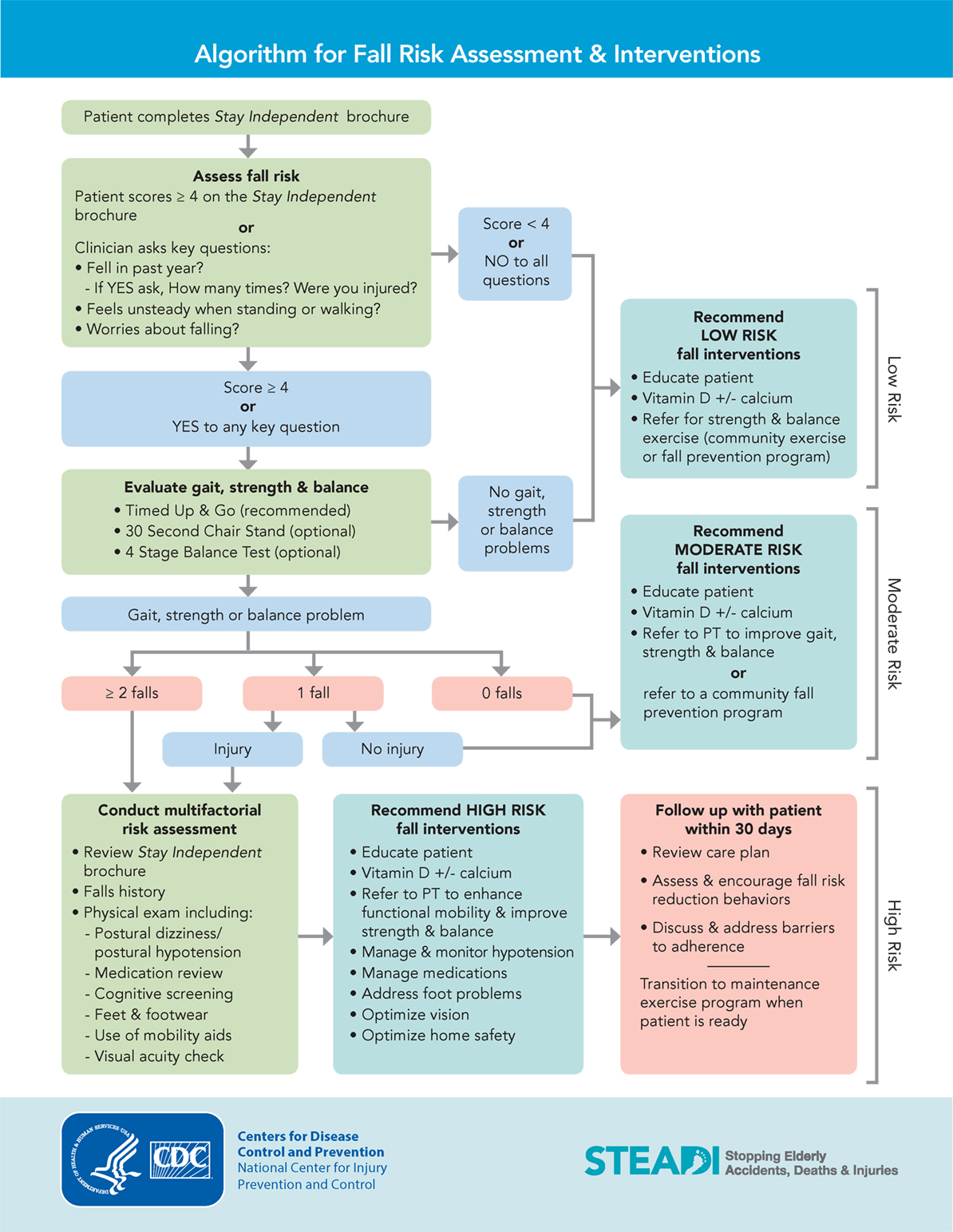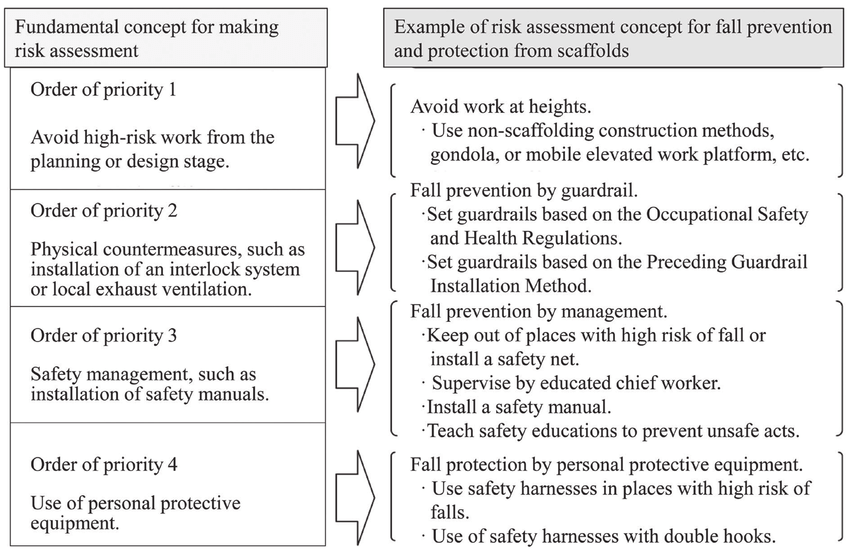The Best Guide To Dementia Fall Risk
The Best Guide To Dementia Fall Risk
Blog Article
Dementia Fall Risk Can Be Fun For Everyone
Table of ContentsRumored Buzz on Dementia Fall RiskThe smart Trick of Dementia Fall Risk That Nobody is DiscussingSome Ideas on Dementia Fall Risk You Need To KnowDementia Fall Risk for Beginners
An autumn risk analysis checks to see just how likely it is that you will certainly fall. The analysis typically includes: This consists of a series of inquiries regarding your overall wellness and if you have actually had previous falls or troubles with balance, standing, and/or strolling.Interventions are referrals that might reduce your danger of dropping. STEADI consists of 3 steps: you for your threat of dropping for your threat elements that can be improved to try to protect against falls (for example, equilibrium problems, damaged vision) to reduce your risk of falling by utilizing reliable techniques (for instance, giving education and sources), you may be asked several questions including: Have you dropped in the previous year? Are you stressed concerning dropping?
If it takes you 12 secs or even more, it may mean you are at higher danger for a loss. This examination checks toughness and equilibrium.
Move one foot halfway ahead, so the instep is touching the huge toe of your various other foot. Relocate one foot fully in front of the other, so the toes are touching the heel of your various other foot.
4 Easy Facts About Dementia Fall Risk Explained
Many drops take place as a result of several adding factors; as a result, handling the threat of falling starts with identifying the aspects that add to fall danger - Dementia Fall Risk. Some of one of the most relevant danger aspects consist of: Background of previous fallsChronic clinical conditionsAcute illnessImpaired stride and balance, lower extremity weaknessCognitive impairmentChanges in visionCertain high-risk drugs and polypharmacyEnvironmental aspects can likewise raise the risk for falls, including: Insufficient lightingUneven or harmed flooringWet or slippery floorsMissing or damaged handrails and order barsDamaged or improperly fitted devices, such as beds, mobility devices, or walkersImproper usage of assistive devicesInadequate supervision of the people residing in the NF, including those who exhibit aggressive behaviorsA successful fall threat management program calls for a complete professional analysis, with input from all members of the interdisciplinary group

The treatment plan must likewise include interventions that are system-based, such as those that promote a safe environment (appropriate lights, hand rails, get bars, etc). The effectiveness of the interventions should be assessed periodically, and the treatment plan modified as required to reflect adjustments in the loss danger evaluation. Implementing an autumn risk management system making use of evidence-based finest method can reduce the frequency of drops in the NF, while limiting the possibility for fall-related injuries.
The Main Principles Of Dementia Fall Risk
The AGS/BGS guideline recommends evaluating all adults aged 65 years and older for loss danger each year. This screening is composed of asking clients whether they have actually fallen 2 or more times in the previous year or sought clinical focus for a fall, or, if they have not dropped, whether they feel unsteady when strolling.
People that have actually dropped once without injury needs to have their equilibrium and stride assessed; those with stride or equilibrium abnormalities must obtain additional evaluation. A background of 1 loss without injury and without gait or balance troubles does not warrant additional analysis past continued annual loss threat testing. Dementia Fall Risk. A loss risk evaluation is needed as component of the Welcome to Medicare exam

The 45-Second Trick For Dementia Fall Risk
Recording a falls history is among the high quality signs for fall prevention and management. A crucial component of danger evaluation is click site a medication review. Several courses of medicines raise loss risk (Table 2). Psychoactive medications specifically are independent forecasters of drops. These medicines tend to be sedating, modify the sensorium, and harm balance and gait.
Postural hypotension can commonly be eased by lowering the dosage of blood pressurelowering medicines and/or stopping drugs that have orthostatic hypotension as a negative effects. Use above-the-knee assistance hose pipe and copulating the head of the bed raised may additionally decrease postural decreases in high blood pressure. The preferred elements of a fall-focused health examination are displayed in Box 1.

A TUG time above or equivalent to 12 seconds recommends high loss danger. The 30-Second Chair Stand examination analyzes lower extremity stamina and balance. Being incapable to stand up from a chair of knee elevation without making use of one's arms shows enhanced fall threat. The 4-Stage Equilibrium examination evaluates static balance by having the patient stand in 4 settings, each gradually a lot more challenging.
Report this page